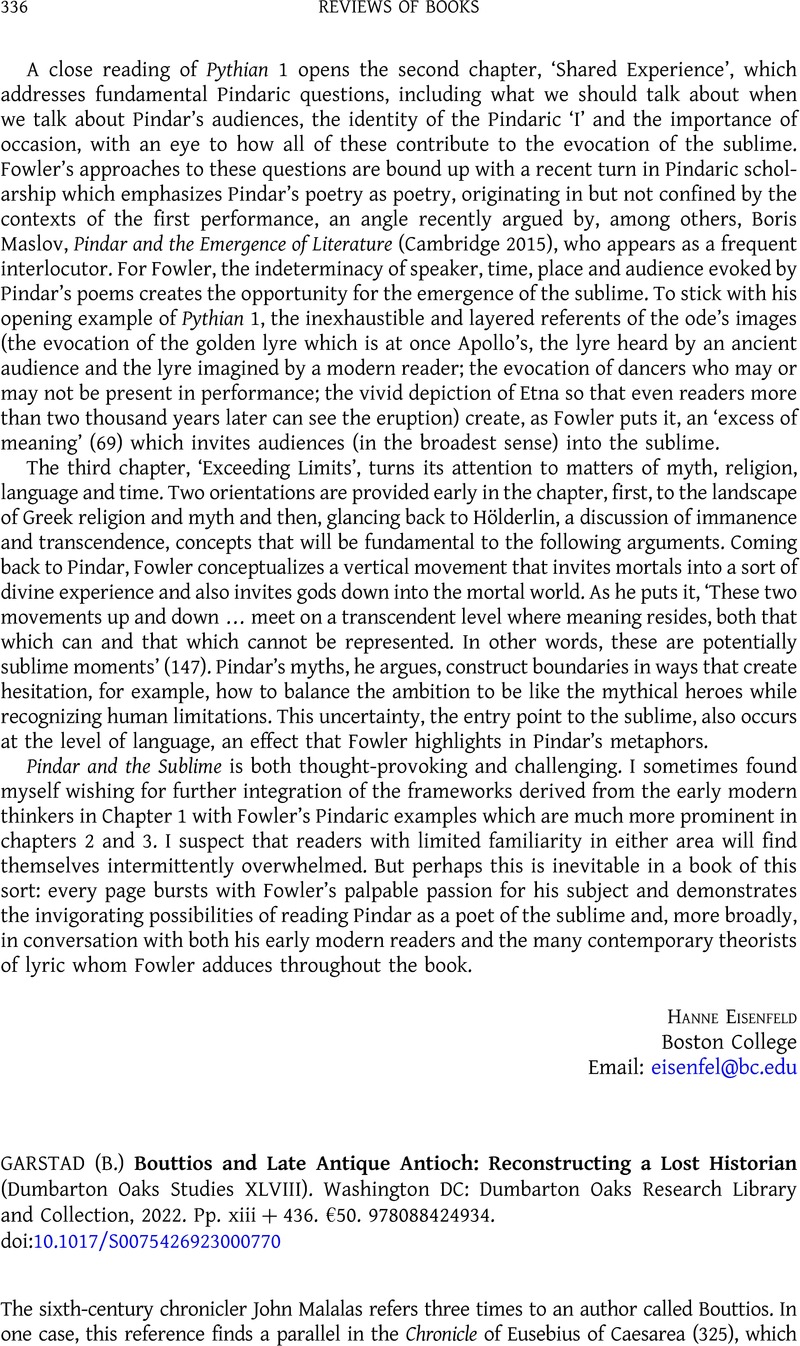No CrossRef data available.
Article contents
(B.) GARSTAD Bouttios and Late Antique Antioch: Reconstructing a Lost Historian (Dumbarton Oaks Studies XLVIII). Washington DC: Dumbarton Oaks Research Library and Collection, 2022. Pp. xiii + 436. €50. 978088424934.
Review products
(B.) GARSTAD Bouttios and Late Antique Antioch: Reconstructing a Lost Historian (Dumbarton Oaks Studies XLVIII). Washington DC: Dumbarton Oaks Research Library and Collection, 2022. Pp. xiii + 436. €50. 978088424934.
Part of:
Literature
Published online by Cambridge University Press: 12 October 2023
Abstract
An abstract is not available for this content so a preview has been provided. Please use the Get access link above for information on how to access this content.

- Type
- Reviews of Books: Literature
- Information
- Copyright
- © The Author(s), 2023. Published by Cambridge University Press on behalf of the Society for the Promotion of Hellenic Studies


